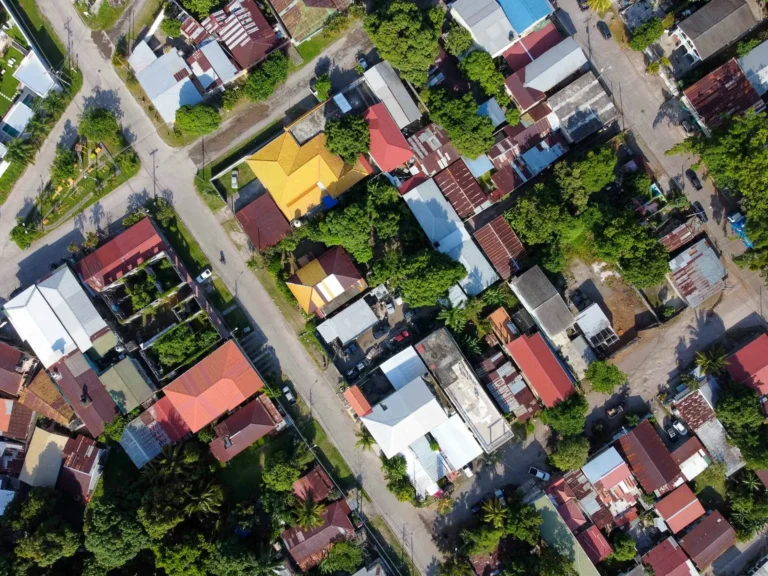
The real estate markets of New Zealand and Australia, though geographically close and often compared, differ significantly in terms of housing affordability, property price trends, regulatory frameworks, and investment potential.
Both countries have experienced dynamic shifts in their real estate landscapes, driven by economic factors, population growth, and government interventions.
Both New Zealand and Australia have seen rapid house price increases in recent years, exacerbated by limited housing supply and high demand, particularly in major urban centres.
Australia:
According to CoreLogic’s Australian Housing Market Update from September 2024, Australian house prices increased by an average of 7.3% over the last year. Sydney, Melbourne, and Brisbane remain the most expensive cities for real estate.
Sydney’s median house price sits around AUD 1.15 million, making it one of the least affordable cities globally. However, growth rates have slowed down in 2024, partly due to increased interest rates set by the Reserve Bank of Australia (RBA).
New Zealand:
New Zealand’s property market, particularly in Auckland and Wellington, has experienced even more significant growth than Australia in recent years. The New Zealand Real Estate Institute reported a 10.9% increase in house prices nationwide in 2023.
Auckland’s median house price is now NZD 1.35 million (AUD 1.26 million). However, 2024 has seen a cooling in the market, with prices stabilising due to stricter lending criteria imposed by the Reserve Bank of New Zealand (RBNZ) and rising mortgage rates.

Price Comparison:
On average, New Zealand’s property prices are higher relative to income levels than Australia’s, making housing less affordable for New Zealanders. While Australia boasts a wider range of property prices due to its size and diversity of markets, New Zealand’s smaller market is concentrated in a few key urban centres, driving up prices.
For instance, the median house price in Auckland is higher than in Sydney, despite the latter being larger.
According to Buyer’s Agent Gold Coast – Bikowski Realty, affordability is a key concern in both countries, but the pressure is more pronounced in New Zealand. The price-to-income ratio often measures housing affordability, and New Zealand ranks worse in this regard compared to Australia.
Australia:
In 2024, the Demographia International Housing Affordability Survey ranked Sydney and Melbourne as severely unaffordable, with a price-to-income ratio of 13.3 and 9.5, respectively. The Australian government’s First Home Owner Grant and other schemes have provided some relief, but house prices remain out of reach for many first-time buyers.
New Zealand:
The affordability crisis in New Zealand is more acute. Auckland’s price-to-income ratio is 15.8, one of the highest in the world. The New Zealand government has introduced measures such as the KiwiBuild programme, aimed at increasing the housing supply, but its impact has been limited. High house prices have outpaced income growth, exacerbating inequality and homelessness.
Affordability Comparison:
While both countries face housing affordability issues, the situation in New Zealand is more severe. Australia’s larger and more diverse economy allows for regional differences in affordability. For instance, while Sydney may be unaffordable, cities like Perth and Adelaide offer more affordable alternatives, with median house prices below AUD 600,000.
In New Zealand, the disparity between incomes and house prices is greater, and there are fewer affordable alternatives outside major cities like Auckland and Wellington.
For property investors, both Australia and New Zealand offer attractive opportunities, though the regulatory environments differ.
Australia:
Australia remains a popular destination for property investment due to its stable economy, high population growth, and favourable tax policies, including negative gearing and capital gains tax exemptions.
Foreign investment rules have become stricter in recent years, with limits on non-resident buyers, particularly for existing dwellings. However, Australia’s diverse property market, with opportunities in major cities as well as regional areas, continues to attract both local and international investors.
New Zealand:
New Zealand’s investment market has become more challenging due to recent government policies aimed at curbing property speculation. In 2021, the New Zealand government banned most foreigners from buying residential property to control rising house prices. Howick and Pakuranga have been popular spots.
Additionally, new rules have limited tax deductibility for investment properties, reducing the appeal of residential property as an investment. Despite these changes, New Zealand’s property market, especially in tourist regions like Queenstown, still offers strong capital growth potential.

Investment Comparison:
Australia offers a more investor-friendly environment compared to New Zealand. Policies like negative gearing and more lenient foreign investment rules make it easier for investors to enter the market.
In contrast, New Zealand’s stricter regulations and limited tax benefits have reduced its attractiveness for property investment. Investors in New Zealand need to carefully consider the long-term potential of capital gains and rental yields in a market that has seen significant government intervention.
Government intervention in the housing markets of both countries has played a significant role in shaping their current landscapes.
Australia:
In Australia, housing policy is largely influenced by state and federal governments, with a focus on improving the housing supply and providing support to first-home buyers. The RBA’s monetary policy, including raising interest rates to control inflation, has tempered the housing market in recent years.
At the federal level, programs such as the First Home Super Saver Scheme and stamp duty concessions for first-home buyers aim to improve affordability. However, these policies have been criticised for not addressing the underlying issue of supply shortages in major cities.
New Zealand:
New Zealand’s government has taken a more aggressive approach to control the housing market, particularly in response to the affordability crisis. In addition to the foreign buyer ban and changes to tax rules for property investors, the RBNZ has introduced loan-to-value (LVR) restrictions, requiring buyers to have larger deposits, particularly for investment properties. These policies have successfully cooled the housing market, but some argue that they have made it harder for first-time buyers to enter the market.
Policy Comparison:
While both countries have implemented measures to control house price growth and improve affordability, New Zealand has adopted a more interventionist approach. Australia’s housing policy is relatively market-driven, with less direct interference in property investment. New Zealand, on the other hand, has placed stricter regulations on investors and foreign buyers, which has helped slow price growth but may limit future investment opportunities.
The real estate markets of New Zealand and Australia, while sharing some similarities, diverge in critical aspects such as affordability, investment potential, and government intervention. Australia’s larger and more diverse property market offers greater opportunities for both homebuyers and investors, though affordability remains a concern, particularly in major cities.
New Zealand, with its smaller, more concentrated market, faces a more severe affordability crisis, exacerbated by high prices in cities like Auckland. For investors, Australia presents a more favourable environment due to its tax policies and fewer restrictions, whereas New Zealand’s recent regulatory changes have made it a more challenging market to navigate.

MyMansion.co.nz provides comprehensive property insights, market analysis, and expert advice for New Zealand’s real estate landscape. For the latest property news, investment strategies, home improvement tips, and industry perspectives visit MyMansion.co.nz – Your Property Journey, Our Expertise.
© 2020 MyMansion.co.nz - All right reserved.
MyMansion says:
Attention Real Estate Aficionados! We welcome you to share your unique insights and expertise on our blog. Whether you’re a seasoned real estate professional or a passionate enthusiast, we’d love to feature your contributions. Join us and become part of our thriving community. Reach out to explore writing opportunities and get involved!
miguel says:
Hi! I just wrapped up reading your post and wanted to say how insightful I found it. You’ve addressed some key points that often don’t get enough attention, and I appreciated how clearly you explained everything. It definitely struck a chord with me, and I’m sure your readers will benefit as well. Thanks for sharing such valuable information, and keep up the excellent work!
Evie says:
Your articles never fail to captivate me. Each one is a testament to your expertise and dedication to your craft. Thank you for sharing your wisdom with the world.
margarett says:
Your writing is like a breath of fresh air in the often stale world of online content. Your unique perspective and engaging style set you apart from the crowd. Thank you for sharing your talents with us.